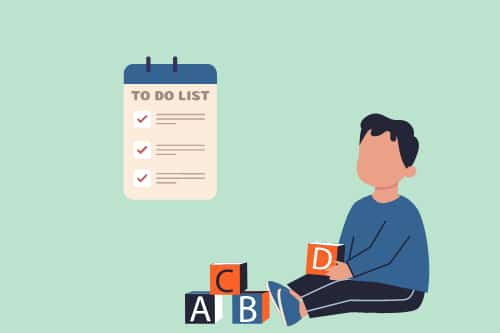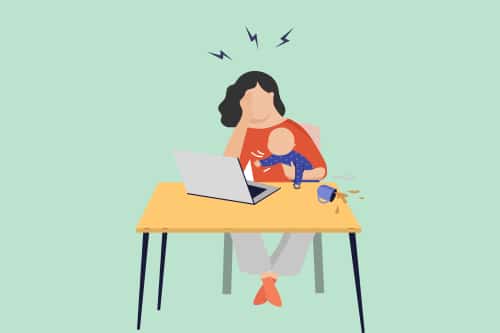
Summary: Are you a parent who is finding it hard to manage the multiple responsibilities you need to do? Has the pandemic added to your woes? Then this article is for you. Pandemic has caused parents to question their parenting skills as children are staying indoors and their responsibilities have increased twofold. Parenting in a pandemic is hard. This article will help you understand your roles and ways to cater to your child amidst these uncertain times.
Parents across the globe have had the biggest challenge during this pandemic. Parenting amidst the pandemic. Whether you are a new parent or have been a parent for years now, the challenge of parenting persists. Along with the multitude of roles that a parent has; partner, mother/father, working or non-working, new roles and responsibilities have been added to your list. Parents additionally have to take up roles of being a teacher, mentor, classmate, or friend. This has made parenting difficult and extremely stressful.
The woes of parents during the pandemic
As parents, you may be working towards establishing some rules or guidelines to manage the family situation better during the pandemic. However, given the mountain of work and duties, parents are drained.
Most of the parents are struggling with their own mental health. With rising financial strain, frequent conflicts between family members, there may be very less time dedicated for children.
Most often parents take out their frustrations on the child, which can create barriers between them. Sometimes, children create demands on parents, which can increase the burden on the parent(s), adding to their stress.
Parents need to know that what they are doing currently is one of the hardest things. Since last year, with the sudden lockdown, schools being shut and the immense number of fear that arose, their lives have been upturned. Parents are struggling to manage their office, housework, finances, and health during these uncertain times. Having to focus on children along with it can get frustrating and tiring.
It is okay if you as a parent feel that you have no idea what you are doing. The world was not prepared for this situation. There is no rule book on how to go about parenting when you, as a parent, are struggling to continue in this upheaval.
Want a safe space to vent? Connect with our therapist here.
The kid(s) perspective
A few of the common phrases that are being said by a parent these days are “my kid is not listening to me”, “My kid(s) do not let me do anything in the house” and “My child cannot just sit in one place”.
COVID-19 has also impacted children. Their school has been shut leading to a lack of socialization, meeting their friends, limitations in learning academics, and essential soft skills. They are experiencing a loss of routine and normalcy as well. Also, as kids are exposed to news, some may feel hopeless about the current state of the world while some may be trying to understand the pandemic.
Children from the past year have been doing their best to adapt to the new normal. With classes shifting online; there has been a lack of physical interaction, which is crucial for their development. With friendships moving long distances for them, they are encountering feelings of loneliness.
As their home has become their entire world, they struggle between wanting space and having attention from their parents. Most children are not raised in an environment where their emotions are prioritized or even talked about! This leads the child to be unable to understand and get in touch with their feelings. They experience overwhelming mixed emotions, which they might not know how to process. This can lead them to ‘act out’, get irritated, frustrated, and easily upset.
As both parents and children are coping through the difficult time, it becomes crucial to learn ways to manage this better. We are moving towards accepting the ambivalent situations that the pandemic has brought. Exploring ways to make the family environment safe and supportive during this time is an important aspect for parents.
Ways to be better your parenting skills in the pandemic
#1 Provide structure
It’s important for children to have some form of consistent routine. Set some time frame around bedtime, using devices, playtime, and relaxing time. Make sure there is a wider time instead of an exact time with an emphasis on an end time. For example, “wake up time is between 7-7:30 am. By 7:30 you need to be out of the bed.” This provides some flexibility but also a sense of the end limit to it.
#2 Pick your battles
As the entire family is under one roof for days together, conflicts are bound to occur. Conflicts are normal, how you work through them requires skill. Some conflicts need to be worked through while some small ones can be dealt with on another day or skipped. As a parent, it is natural you would like to rectify even a small behavior. But given the circumstances, it is okay to cut some slack.
#3 Listen to your child
An important part of communication is to listen. Parents tend to push their opinions and ideas on a child without understanding the child’s point of view. When your child seems to express themselves in terms of anger or frustration, instead of labeling it as a tantrum, ask “what is making my child feel this way?”
It is helpful to keep suggestions to yourself and encourage your child to answer what will help them. If a child is feeling lonely, instead of suggesting to do chores or play by themselves, ask “What can I do to help you through this?” This way you are encouraging your child to find solutions for themselves instead of imposing your ideas which may get rejected.
#4 Set boundaries
With work from home approach, families now have to scram around the house to find a place of quiet. They are adjusting with one another for calls, looking for a space away from the noise to finish their work. Parents who do not have professional work now have triple work; taking care of chores, children, and their partner’s needs. This hardly leaves time to interact with the child and keep up with their constant needs.
As a parent, you need to draw boundaries with your child in a firm yet gentle manner. You could explain to your child that – I have some chores to finish, I will get back to you at this time and we can spend a few minutes together. If they disturb you, instead of reacting, reaffirm your boundary by saying you are upset that your time/needs were not respected.
#5 Set together time
Dedicate a few minutes of time either daily or alternate days to do a shared activity as a family. It can be either watching things together or playing a game together. This way, you are creating connections with each other. Spending time together can also act as a stress reliever for the family.
#6 Positive reinforcement
Our society believes that negative reinforcement and punishment are ways to teach a child. But it does more harm than good. Repetitive negative feedback will create friction between you and your child. It can also lead to self-esteem issues for the child.
If you want your child to improve and grow, positive reinforcement is important. Praise on acceptable behavior and even the task being completed. (even if it is not done the way you want it to be!) If your child has made a mess, instead of shouting – tell them to clean up to get extra playtime.
#7 Engagement
Children love engagement in some form or another. Younger children are more active and like to dispel the energy they have. Motivate them to play and move around. Give them dedicated space and time. You can also come up with a fun way for them to help you finish chores. You can also set up playdates with their friends.
For older children, ask them to teach you concepts or topics which you are unfamiliar with. This gives them space to explore, learn more and you get to have an insight into their interests. It’s crucial that partners take turns while engaging with their child to reduce one-sided responsibility and create bonds.
#8 Take care of yourself
It is necessary for parents to take care of themselves, especially during a time like this. Conflicts between partners and family members need to be dealt with in a sensitive manner. If parents are constantly exhausted, tired and are not taking care of their physical and mental health, it starts to impact their children. Learn ways to manage your stress, prioritize your tasks and regulate your emotions.
Conclusion
Pandemic has put the entire responsibility of raising the child alone on their parents’ shoulders. As the community’s role in helping children has reduced considerably, parents now face a challenge to manage not only their other responsibilities but also their children. Nevertheless, parents can devise ways to work through this.
Frequently Asked Questions (FAQ)
A. It can be overwhelming to manage so much work and spend time with your child. You can give small tasks for your child to do, like coloring a mandala while you finish your work. Online play dates also provide opportunities for socialization.
A. It is understandable that the work shift has caused workload to also increase. Communicating and setting boundaries regarding spending time with children becomes essential. Working with a professional can help in coming up with ways you both can equally spend time together & with your child.
A. Ask them what they already know. As children are exposed to news & social media, they might have built some perceptions around it. Conversations need to be age-appropriate. Talk about the virus but not in a fearful way to not produce any anxiety or fear. Reassure the child about safety and that the family is healthy to work through it together.











